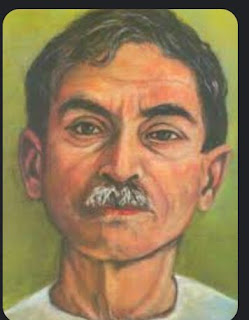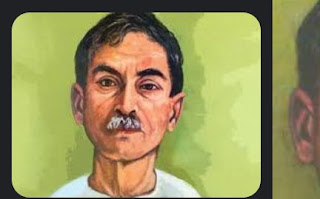The biography, age, early life, career, and lifestyle of Munshidearn
Often referred to as the "Shakespeare of Hindi literature," Munshi Premchand was a renowned Indian author who transformed the genre of fiction writing in Hindi and Urdu. Premchand raised awareness of social concerns and the lives of common people by using compelling storytelling. His realistic, empathetic, and literary-influencing writings are still praised today.
Premchand was born on July 31, 1880, as Dhanpat Rai in Lamhi, an Uttar Pradesh village close to Varanasi. His family belonged to the lower middle class. Premchand's father, Ajaib Lal, was a post office clerk and had a significant impact on his upbringing. A progressive thinker, Ajaib Lal felt that, at an era when girls were not often educated, he should educate his children, especially his sons.
EARLY DECADES AND AGE
When Dhanpat Rai was only fifteen years old, his mother died in 1895. This terrible incident left a lasting impression on him and affected his future writing. In 1907, having finished his schooling in Allahabad, he relocated to Kanpur and began working as a teacher.
It was during this time that Dhanpat Rai adopted the pen name "Nawab Rai" and later changed it to "Premchand," which literally means "the moon of love." This marked the beginning of his literary journey, where he aimed to bring social reform and address the issues faced by the marginalized sections of society.
HISTORY OF HIS CAREER
The dominant nationalist movement in India had a significant influence on Premchand's early works. He wrote to draw attention to societal injustices and took an active part in the independence struggle. He wrote with the goal of effecting change because he thought that writing should have a social function.
Premchand wrote extensively about rural India, addressing issues including poverty, caste systems, exploitation of women, and the difficulties experienced by farmers. The harsh realities of rural life and the widespread poverty depicted in his writings were rendered convincingly. In this genre, he produced some noteworthy works including "Godan," "Karmabhoomi," and "Nirmala," all of which are now considered classics in Indian literature.
Premchand's writings were not limited to novels and short stories; he also dabbled in other forms of literature. He wrote plays, essays, and translated numerous works from Hindi and Urdu to bring them to a wider audience. His translations of world literature, including works by Rabindranath Tagore, Leo Tolstoy, and Guy de Maupassant, introduced international literary practices to Indian readers.
Premchand also played an active role in the development of Hindi literature. He was associated with several literary organizations and worked as an editor for the popular Hindi magazine 'Hans.' Through these platforms, he encouraged young writers, fostering a new generation of Hindi authors.
PASSING AWAY
His writing was not the only thing he was passionate about. He took an active part in the Quit India Movement and the Indian National Congress, among other social and political causes. Premchand endured personal and financial adversity but never stopped advocating for social reform till his tragic death on October 8, 1936.
FINAL VERDICT
Premchand has won various accolades and prizes in appreciation of his literary achievements. His widespread popularity was demonstrated by his 1936 Nobel Prize in Literature nomination. His legacy endures today, serving as a constant reminder of the significance of confronting social issues via art and the transformational power of literature.art.















0 Comments